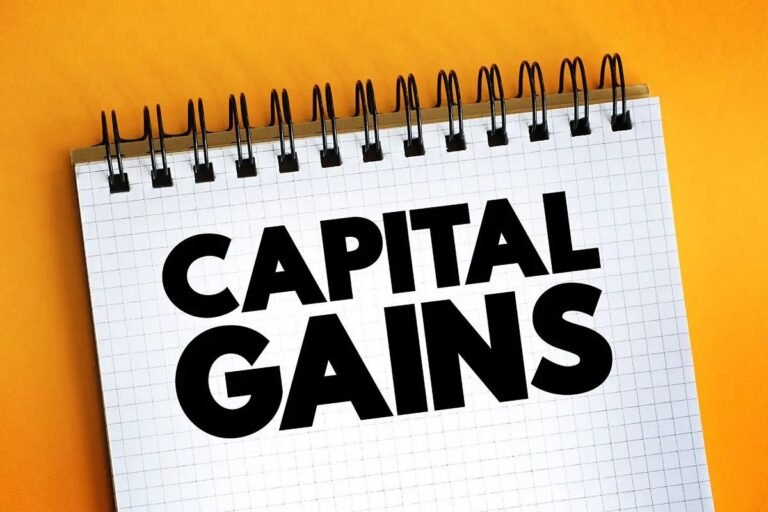If you are VAT registered, selling your business might incur substantial VAT liability to HMRC. To escape such, the sale needs to qualify as Transfer of Going Concern (TOGC)- VAT Notice 700/9.
Not only the sellers but also the buyers benefit from the TOGC.
Firstly, they pay a price exclusive of VAT.
Secondly, if they are purchasing land, Stamp Duty Land Tax is less (because the price paid is less).
What are the eligibility criteria for transferring a business as a TOGC?
Supply of goods or service by a VAT registered entity is vatable. But while selling a business itself, no VAT is chargeable if the business continues after sales. However, there are many eligibility criteria for business transfer as TOGC:
- The buyer should use the assets for the same kind of business as the seller (does not matter what he was doing previously).
- If the seller is a taxable person, buyer should become a taxable person within 30 days of transfer (unless he is already a taxable person). While determining whether the buyer is a taxable person, he should count the turnover of the seller as well.
- If partly transferred, the part of the business must be capable of separate operation. However, the buyer may choose to operate it jointly with other operations.
- The objective of transfer should be such that the business can be operated as it is.
- The business (or its part) being transferred must be a going concern (unless the purpose of disposal is to downsize its operation).
- Trading pattern should not significantly break immediately after the transfer.
- There must not be a series of consecutive transfer of trade and assets.
TOGC for property businesses
While transferring your commercial (but not the residential) property as a part of your business, TOGC might apply.
TOGC on old commercial properties (properties completed before 3 years)
Old commercial properties by default are exempt from VAT (but you can charge VAT by opting to tax).
If you have not opted to tax the property
If you have not opted to tax the property, you do not need to charge VAT on the sale of such property (whether or not the sale qualifies as TOGC).
If you have opted to tax the property
If you have a property which is exempt from VAT, but you want to charge VAT on it, then you ask HMRC to approve for charging VAT.
The process is called option to tax. After opting to tax, you must charge VAT while selling the property (so the sale of such property does not count as TOGC). However, the transaction is considered TOGC if the buyer opts to tax the property (i.e., will charge VAT on rental income or subsequent sale of the property).
TOGC on new commercial properties (properties completed within previous 3 years)

Normally, TOGC does not apply to sale of new properties₁SI 1995/1268, Art 5(2). Therefore, when the transfer of a business includes new commercial buildings and other assets, there are two separate treatments of VAT; new commercial buildings are charged standard rate, and other assets are not charged VAT.
But if the buyer has opted to tax the property, TOGC applies on transfer of such property.
For TOGC to apply, by when the buyer should notify of the option to tax?
He should notify (by writing) on or before the time of supply and show the written evidence to the seller.
Does the time of supply mean the date of transfer?
Typically, the time of supply is the date of transfer (or the date of deposit payment if it is earlier).
I have the properties leased out to tenants. How does VAT apply on transfer of this business?

Yes. Let out properties (whether commercial or residential) are regarded as property rental businesses for TOGC purposes. Even if the property is partially let, the transfer will qualify as a transfer of going concern (TOGC). But it should be noted that the seller must be transferring property along with the benefit of an existing lease for TOGC provisions to apply.
The condition where the transfer of going concern (TOGC) does not apply is when the lease has been surrendered before the property is transferred. This is because the property rental business has already ceased in this case.
Following transfers are also treated as a transfer of going concern (TOGC):
- If you are a lessee who has been sub-leasing a property and you sell your lease with the benefit of sub-lease, then such transfer is treated as a TOGC
- You have contracted to let your property, but the tenants are enjoying an initial rent-free period, and you sell the building during that rent-free period, this transfer is also regarded as a transfer of going concern (TOGC)
- You intend to rent the property and have found out the tenant but have not yet signed the contract. You are selling the property with the benefit of a contractual arrangement for the lease (though the contract has yet not been signed). Such transfer is also treated as a transfer of going concern (TOGC) if there is sufficient evidence to prove the intended business activity.
- You have a business that owns some land. You intend to construct a building on the land and sell it. You carried out initial works of development. Later, you sold the part of the partially developed land to a property developer who intends to complete the development and sell the building. Then such a transfer is treated as a transfer of going concern (TOGC) provided that the building to be sold would be a taxable supply.
My property development business contains a range of buildings; some are let, some partially let and some unlet.
What is the treatment when I sell such kind of property site?
Such transfer can be considered as a transfer of going concern (TOGC) if all the conditions set out in VAT Notice 700/9, para 1.4, are satisfied.
My business owns properties that fall under Capital Goods Scheme. Do I need to apply Capital Goods Scheme (CGS) sales adjustments in selling those properties?
When capital items (which fall under CGS) are transferred as part of a TOGC, the responsibility to carry out “sales adjustment” shifts to the buyer
Is there any additional requirement for the buyer when he acquires capital items that come under Capital Goods Scheme?
Yes, the transfer of capital items falling under CGS will qualify for TOGC treatment only if
- the buyer makes an option to tax and notifies by the relevant date and
- the buyer confirms to the seller that the option to tax will not be disapplied if the property being transferred is a capital item for the purpose of the Capital Goods Scheme.
If any of the two requirements are not met, the transfer of property (which comes under CGS) will fall outside the scope of transfer of going concern (TOGC). However, the transfer of other business assets still qualifies as a TOGC.
TOGC between member of same VAT group

The companies transfer assets within the group mainly during business transition. When one member of a VAT group transfers business (or its part) to another, and the acquiring member continues the same business to make taxable supplies outside the group, then asset transfer or business sale is a TOGC.
Or when that member (who acquired the business from another) transfers those assets to another member of the VAT group who ultimately uses the assets to make a supply outside the VAT group, then such transfer also qualifies as a TOGC.
But if the assets are not ultimately used to provide taxable supplies outside the group and are consumed within the group, then it is not treated as a TOGC.
Frequently Asked Questions on TOGC
How does VAT apply to the transfer of a business as a going concern? What are the implications of transferring a business as a going concern?
A VAT registered entity must charge VAT selling goods or services. But when he transfers the business or a part of the business. It is considered a TOGC, and the seller should not charge VAT on the sale and the buyer does not need to pay VAT.
What is the process of transferring a business as a going concern in the UK?
To qualify as a TOGC, you need to prove that the business can be continued by the buyer after it is sold. You need to consult with technical experts like:
Lawyer: You need to ensure with the solicitor that the contract for sale must state that you are selling the business as a going concern.
Tax advisor: Without knowing tax implications, you might overcharge or undercharge VAT and ask for trouble (as mentioned below), so contacting a reliable tax advisor is essential.
It seems knowing TOGC rules is beneficial. So, what are the risks of not knowing TOGC rules?
When the seller mistakenly believes that the sale of a business is a TOGC, he does not charge VAT on it. As a result, there will be an under-statement of VAT liability and the implication will be exposure to regulatory risk.
On the other hand, if a sale of the business which is a TOGC is not treated as TOGC, the buyer has to pay extra VAT which he cannot be claimed as input VAT.
My VAT registered business in the UK is yet to make taxable supplies. Does the transfer of my UK business qualify as a transfer of going concern (TOGC) for VAT purposes?
Usually, such transfer is not regarded as a transfer of going concern. However, it is a TOGC if you have carried out sufficient preparatory works to make taxable supplies.
How to transfer the business of my limited company as a going concern?
Mere transfer of share ownership not a TOGC. For TOGC to apply, it is not the shares but the assets that should be transferred. If the shares are transferred to new shareholders but the assets are still owned by limited company, this is not a TOGC.
If the buyer is not already registered in VAT, can he use the VAT number of the transferor?
Yes, if he wishes. But doing so means that transferee must be accountable for all VAT related liabilities and be answerable to any questions raised by investigation/assessment. SI 1995/2518, Reg 6(1)
Whose responsibility will it be to retain past VAT related records- seller or buyer?
Unless the buyer elects to use VAT registration number of the seller, there is no requirement to pass VAT related records to the buyer. However, the seller must make the necessary information available if required for compliance purposes.
If the seller mistakenly charges VAT while selling his business as a going concern, what will be the VAT implication for the buyer? Can he recover the paid VAT?
If the seller mistakenly charges VAT while selling his business as a going concern, he should cancel the VAT invoice and refund the VAT paid by the buyer.
Need our support?
Business transfer process and its VAT implications require careful consideration. TOGC is a highly beneficial but equally risky topic. Our experts can help you determine eligibility for business transfer as TOGC.









